- Clone
- Poly4054 (See other available formats)
- Regulatory Status
- RUO
- Isotype
- Goat Polyclonal IgG
- Ave. Rating
- Submit a Review
- Product Citations
- publications
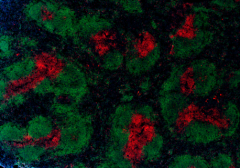
-

C57BL/6 mouse frozen spleen section was fixed with 4% paraformaldehyde (PFA) for ten minutes at room temperature and blocked with 5% FBS for 30 minutes at room temperature. Then, the section was stained with 10 µg/mL of purified anti-mouse/human CD45R/B220 (clone RA3-6B2) and anti-mouse CD3ε (clone 500A2) Alexa Fluor® 594 (red) overnight at 4°C, followed by 2.5 µg/mL of anti-rat IgG (clone Poly4054) Alexa Fluor® 488 (green) for two hours at room temperature. Nuclei were counterstained with DAPI (blue). The image was captured by 10X objective.
Goat anti-rat IgG antibody reacts primarily with the heavy chains of rat IgG, but also partially binds to the light chains common to most rat immunoglobulins. No cross-reactivity has been detected against non-immunoglobulin serum proteins. This antibody has been solid-phase absorbed to ensure minimal cross-reaction with rabbit, human, bovine, horse, and mouse immunoglobulins, but it may cross-react with other immunoglobulins from other species.
Product DetailsProduct Details
- Verified Reactivity
- Rat
- Antibody Type
- Polyclonal
- Host Species
- Goat
- Formulation
- Phosphate-buffered solution, pH 7.2, containing 0.09% sodium azide.
- Preparation
- The antibody was purified by affinity chromatography and conjugated with Alexa Fluor® 488 under optimal conditions.
- Concentration
- 0.5 mg/mL
- Storage & Handling
- The antibody solution should be stored undiluted between 2°C and 8°C, and protected from prolonged exposure to light. Do not freeze.
- Application
-
FC - Quality tested
IHC-F - Verified - Recommended Usage
-
Each lot of this antibody is quality control tested by immunofluorescent staining with flow cytometric analysis. For flow cytometric staining, the suggested use of this reagent is ≤ 0.5 µg per million cells in 100 µL volume. For immunohistochemistry on frozen tissue sections, a concentration range of 2.5 - 5.0 µg/mL is suggested. It is recommended that the reagent be titrated for optimal performance for each application.
* Alexa Fluor® 488 has a maximum emission of 519 nm when it is excited at 488 nm.
Alexa Fluor® and Pacific Blue™ are trademarks of Life Technologies Corporation.
View full statement regarding label licenses - Excitation Laser
-
Blue Laser (488 nm)
- Application Notes
-
This goat anti-rat IgG antibody is useful for direct immunofluorescent staining or as a second step reagent for indirect immunofluorescent staining when used in conjunction with primary antibodies.
-
Application References
(PubMed link indicates BioLegend citation) - Product Citations
-
- RRID
-
AB_2563120 (BioLegend Cat. No. 405418)
Related FAQs
Other Formats
View All IgG Reagents Request Custom ConjugationCustomers Also Purchased
Compare Data Across All Formats
This data display is provided for general comparisons between formats.
Your actual data may vary due to variations in samples, target cells, instruments and their settings, staining conditions, and other factors.
If you need assistance with selecting the best format contact our expert technical support team.
-
APC Goat anti-rat IgG (minimal x-reactivity)
-
FITC Goat anti-rat IgG (minimal x-reactivity)
-
HRP Goat anti-rat IgG (minimal x-reactivity)
-
PE Goat anti-rat IgG (minimal x-reactivity)
-
Purified Goat anti-rat IgG (minimal x-reactivity)
-
PE/Cyanine7 Goat anti-rat IgG (minimal x-reactivity)
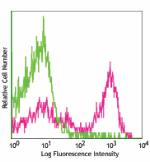
C57BL/c mouse splenocytes stained with purified rat anti-mou... -
Cyanine3 Goat anti-rat IgG (minimal x-reactivity)
-
Brilliant Violet 421™ Goat anti-rat IgG (minimal x-reactivity)
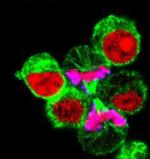
293E cells were stained with purified anti-Histone H3-Phosph... -
Alexa Fluor® 647 Goat anti-rat IgG (minimal x-reactivity)
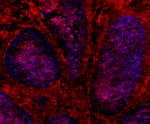
Human frozen tonsil section was fixed with 4% paraformaldehy... -
Alexa Fluor® 488 Goat anti-rat IgG (minimal x-reactivity)
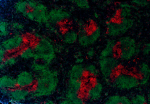
C57BL/6 mouse frozen spleen section was fixed with 4% parafo... -
Alexa Fluor® 555 Goat anti-rat IgG (minimal x-reactivity)
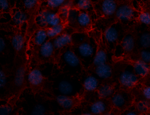
NIH/3T3 mouse fibroblasts were fixed with 1% paraformaldehyd... 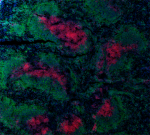
C57BL/6 mouse frozen spleen section was fixed with 4% parafo... -
Alexa Fluor® 594 Goat anti-rat IgG (minimal x-reactivity)
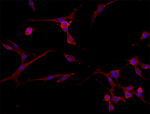
NIH/3T3 mouse fibroblast cell line was fixed with 1% parafor... 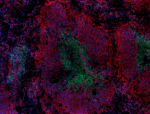
C57BL/6 mouse frozen spleen section was fixed with 4% parafo... -
PerCP/Cyanine5.5 Goat anti-rat IgG (minimal x-reactivity)
-
APC/Fire™ 750 Goat anti-rat IgG (minimal x-reactivity)
-
Brilliant Violet 605™ Goat anti-rat IgG (minimal x-reactivity)
-
PE/Dazzle™ 594 Goat anti-rat IgG (minimal x-reactivity)
-
Biotin Goat anti-rat IgG (minimal x-reactivity)









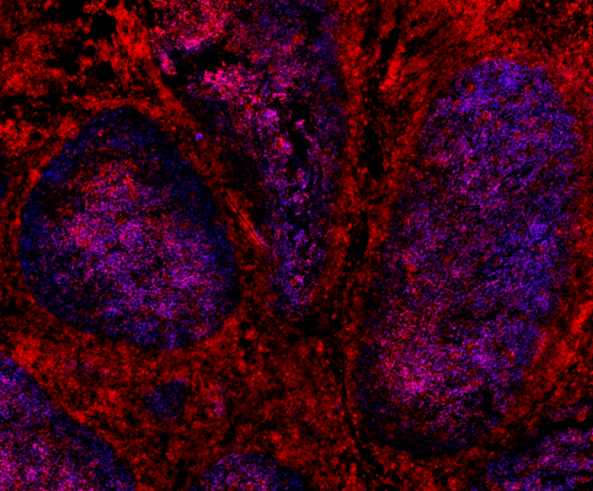
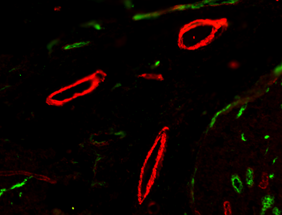
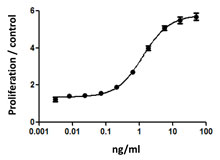
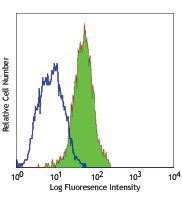



Follow Us